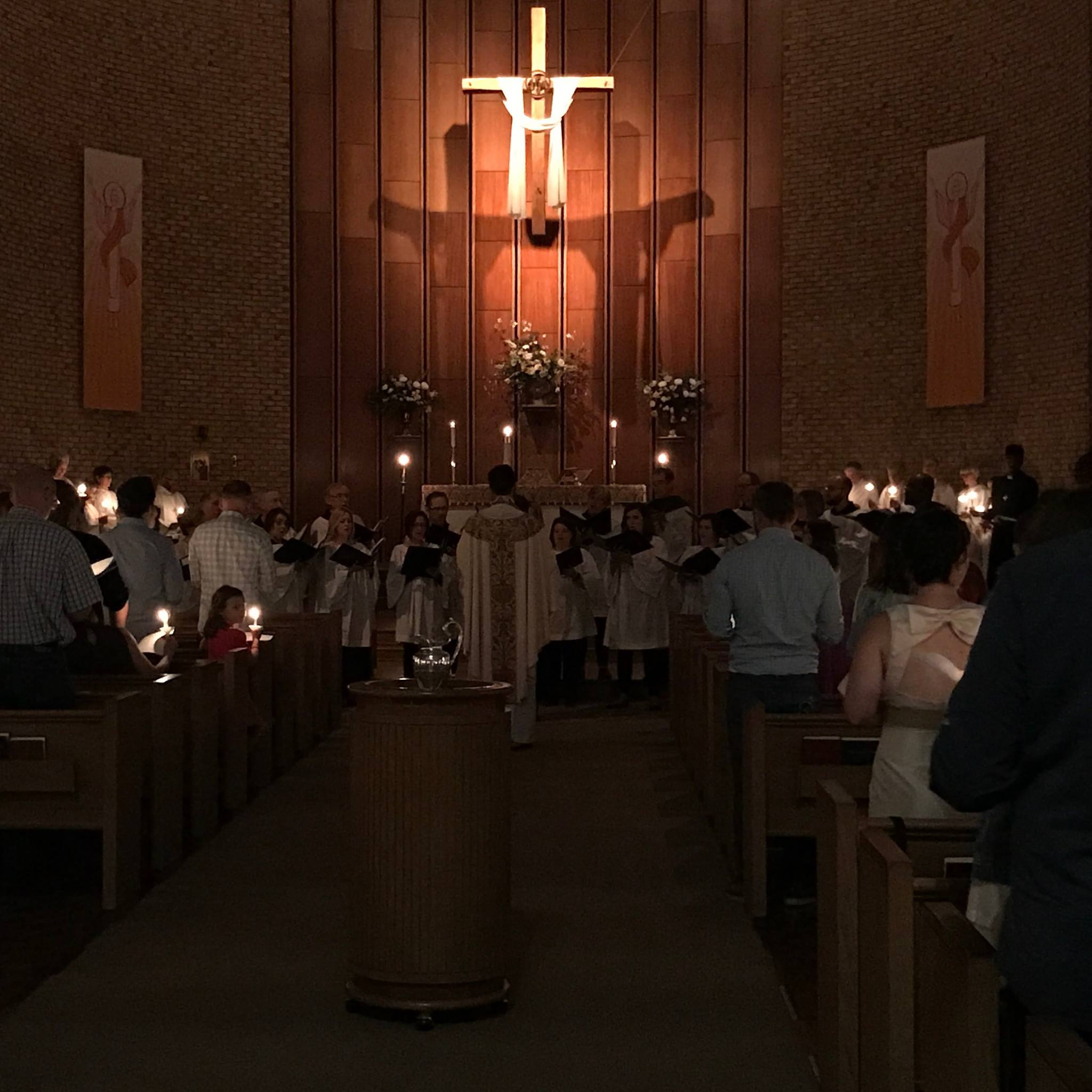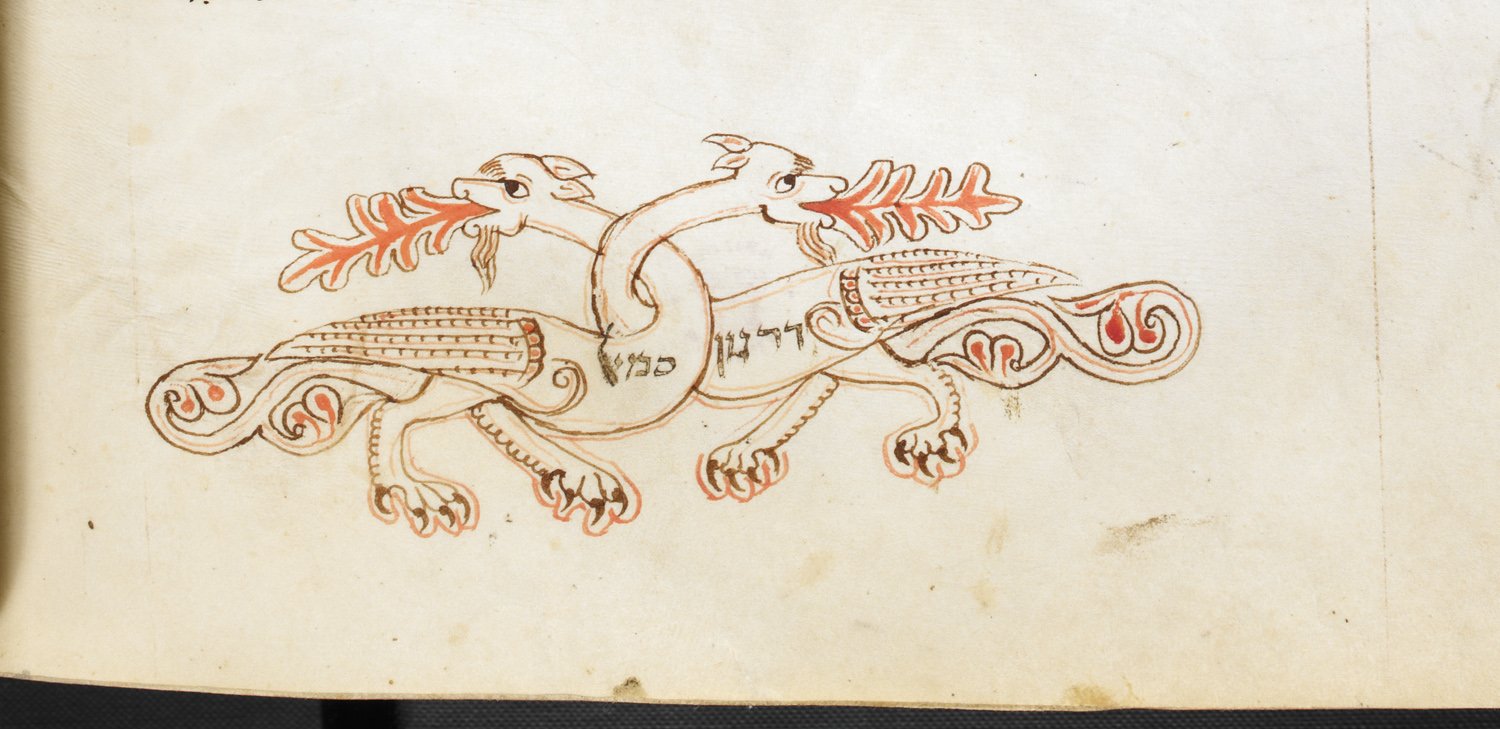I don’t often post my sermons here largely because while I write my sermons out they are not really meant to be read and are more like an detailed outline. This one is a little more complete but I particularly wanted to post it because I am interested in any comments on my reading of this Gospel passage.
Proper 23, Year A, RCL
Philippians 4:1-9
Matthew 22:1-14
This morning’s Gospel, like the parable from last Sunday’s reading, is often called a “hard saying” by many modern commentators. Jesus’ speaking of people being cast into “the outer darkness” and being excluded from the Kingdom of Heaven just seems too condemning, too exclusionary for many today. For example, I am on an email list with other clergy my age and in discussing this week’s Gospel one priest said, “What a violent, nasty little parable that is.” It is not a “violent, nasty little parable” if one takes the time to read and wrestle with it. It is, in fact, a parable of salvation and grace.
The irony is that while these sayings are a stumbling block for so many priests and scholars today because they view them as exclusionary, the parable is actually about the universal call of the Gospel to all nations, not just the Jews, and it was that universal aspect of Jesus’ message that proved to be the stumbling block to so many in his own day.
Like most of Jesus’ parables the meaning is fairly obvious to us reading it from the other side of the crucifixion and Easter.
2 “The kingdom of heaven may be compared to a king who gave a wedding banquet for his son. 3 He sent his slaves to call those who had been invited to the wedding banquet, but they would not come.”
The king in the story is God and his son is Jesus. The wedding banquet is an image often used to describe the end of the world, when God and his people will be reunited in joyous celebration. The coming of the bridegroom is used in the Gospels to depict the coming of the Messiah and the ushering in of this final age, the necessary precursor for the wedding feast.
Those who are invited to the feast are thus Israel, God’s chosen people with whom he has made his covenant. They have known that the time was going to come, the invitations had already been sent, but they were waiting for the servants to bring word that the event was actually happening. The time has arrived at last for the wedding banquet and the king sends his servants to remind the guests of their invitation and to tell them to hurry, the time is now. The prophets, John the Baptist, Jesus, and now his disciples are those who called out to their fellow Jews to recognize that the bridegroom is now here and that the feast is at hand! But they rejected him. They did not believe that it was really happening.
5 But they made light of it and went away, one to his farm, another to his business, 6 while the rest seized his slaves, mistreated them, and killed them.
Their response was to mock the servants and at best to go back to their work, the mundane tasks of everyday life, and at worst to beat the messengers and to kill them.
The king punishes those who had committed murder and then sends his servants out again, this time inviting anyone they could find to join in the feast.
Then he said to his slaves, ‘The wedding is ready, but those invited were not worthy. Go therefore into the main streets, and invite everyone you find to the wedding banquet.’ Those slaves went out into the streets and gathered all whom they found, both good and bad; so the wedding hall was filled with guests.
Remembering that the wedding feast represents the kingdom of heaven here we find God opening wide the doors to anyone who will come, the good and the bad, all are welcome into the kingdom of heaven. This is a universal message, God’s salvation is not just for Israel, but rather the salvation of all the world came through Israel. The Messiah came from and first to Israel but now the Gospel goes out into all the world, as Jesus said to his disciples before his ascent into heaven, “Go therefore and make disciples of all nations.”
Yet this is not universalism. That is to say, Jesus is not saying that all will be in heaven regardless of anything they say or do. First of all one must accept the invitation. The first group, or at least many among them, did not accept the invitation. They did not come to the feast but would rather go about their daily work and chores rather than go to the king’s house. One must both hear the Gospel message and accept it. God will not force us through the door, he will not force us to eat and drink at his table, rather he offers us the invitation and the ways and means to join him, but the final decision is our own.
Then there is the man who came and was not wearing the wedding robe. It is perhaps this portion of the parable that so disturbed my colleague. But this is our example of God’s grace and how we are often unwilling to accept it. While the invitation went out to all, both the bad and the good, “the poor, the crippled, the blind and the lame,” as Luke recounts, they were not to remain as they were, perhaps dirty and in rags. Instead, upon entering the God’s house we are to accept his grace and to be transformed, clothed in righteousness. It is not a matter of simply attending church, we are to become new people in Christ.
This is the balance between God’s gracious invitation and his offer to cleanse us of all our sins, bringing us that new life, and our need to respond. God will not force us to accept his call. Only we can make that decision for ourselves and when we do we find God’s spirit dwelling in us and working through us to transform us.
We may find ourselves in many places in this parable. Many of us, perhaps most, were brought up in a Christian church community. At many times in our lives I expect that we have been like those first guests who were invited but did not come. We still consider themselves “friends of the king” yet do we answer him when he calls? Or do we consider our business and day to day lives more pressing, more important? Or worse, do we mock or dismiss, in our hearts of not outwardly, the invitation itself when we hear it, regarding the Gospel message as a relic of a superstitious time?
Or are we like the man who did not have on the wedding clothes? We have been invited, we come and take a look around, but never fully accept the grace that he has offered.
We are all certainly among those of the streets, the good and the bad, to whom the invitation has been given. We are all called to come to his table, to the wedding feast, to join him in joyful celebration of the marriage of his son and his bride the Church.
The very Gospel itself in this parable. We are invited to be with God, no matter what our social or spiritual standing, whether we were among the first or the last to be called. The sacrifice of Jesus was not just for Israel it is for all the world. But while many are called, in fact all are called, few are chosen, not because God has rejected them, but because they have rejected his grace. Accept his invitation and come to the feast. Do not worry about what you are wearing now for God will robe you in his glory and grace and accept the gift of life in Christ.
“For God so loved the world that he gave his only Son, so that everyone who believes in him may not perish but may have eternal life.”
Amen.





3 thoughts on “A “violent, nasty little parable””
Solid. I appreciate the emphasis on the universal and gracious invitation (while being careful to explain why this is not universal-ISM). Good stuff.
Thanks Rick. It was a revelation to see the juxtaposition of the modern complaint of exclusivity and the original objection to inclusiveness.
The fullness of the truth is often a stumbling block for many. For instance it is easier to exclude that the Christ came to cause division (by His message) than it is to remember that He is the Prince of Peace. It is easier to swing with the times and accept what God condemns in our immoral behavior than risk stating that our fallen view of love is actually hating the one who is sinning by not rebuking them. It is easier to exclude from the Bible what constitutes the fullness of the Christ than it is to risk the offense of a spirit that is not humble enough to hear it. There is not one of us as sinners that is not going to find something we don’t like about the full message of the Christ. That does in no way invalidate the truth of it or our being remiss in standing up for it in a hostile age.